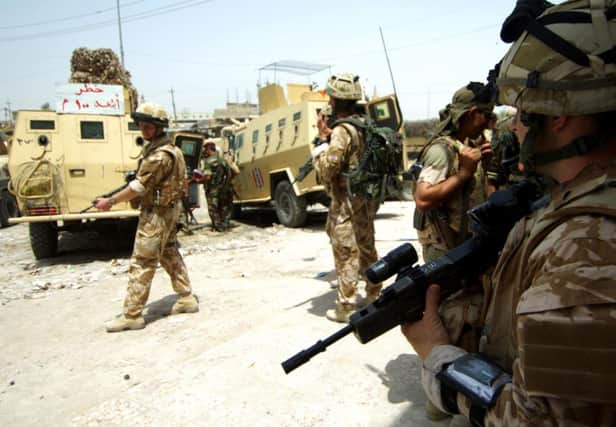David Maddox: Pressure to reverse defence policy


The Prime Minister is expected to recall parliament next week to debate action against Is after an emergency meeting at the United Nations. The last time he did this, to attempt to muster support for airstrikes against Assad’s regime in Syria, he was met with a humiliating defeat when rebel Tory backbenchers joined with Labour to oppose action.
But the pressure now on the Prime Minister – and on Ed Miliband should he lead Labour to victory next year – is to reverse the demilitarisation of the country or whatever is left of it after the Scottish independence referendum vote this week.
Advertisement
Hide AdAdvertisement
Hide AdThe strategic defence and security review (SDSR) in 2010 was supposed to be Mr Cameron’s blueprint to prepare the UK for the challenges. Even at the time critics said it was a Treasury driven cost-cutting exercise and events have shown that it is wholly inadequate to deal with the threats which have emerged.
Not only is the UK having to deal with the problems posed by IS, but Russia under Vladimir Putin appears to be set on restarting the Cold War and re-annexing former parts of the Soviet empire.
While the UK has slashed its military capabilities, including 30,000 service personnel with 20,000 alone from the army, Russia has doubled its defence spending. The demilitarisation of Britain has been matched by its allies and is likely to continue if Scotland votes Yes.
Now Mr Cameron, who in 2010 announced our withdrawal from Germany, is preparing to put 4,500 troops in Poland instead. He is also under intense pressure to open three new military bases in the Middle East.
Defence ministers have also all but accepted the need to replace hardware scrapped in 2010, not least the maritime patrol aircraft which has been identified by the defence select committee as the biggest capability gap in the UK’s defences since Nimrod was ditched.
The calls Mr Cameron will be facing now will be to remilitarise and to increase the size of the UK’s armed forces again. This will not just come from disgruntled military chiefs, but politicians from both sides of the House.
It is an old maxim that the first duty of a government is to defend its citizens. Even with a continued shortage of money, whoever wins the 2015 election – Mr Cameron or Mr Miliband – will be asked to live up to the expectation and reverse the UK’s military decline.